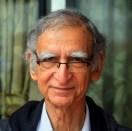
As the massive scam related to electoral bonds was unfolding, Union home minister Amit Shah declared the rules and procedures for implementation of Citizenship (Amendment) Act (CAA) which was passed nearly four years ago. The timing of its implementation, with the electoral bond scam coming to the surface and general elections right around the corner, is very obvious given the pattern of politics pursued by the BJP.
One recalls that CAA was brought to the fore in the aftermath of the National Register of Citizenship (NRC), which was undertaken in Assam. The people were asked to provide the papers related to their citizenship. The understanding was that Assam has been infiltrated by Bangladeshi Muslims to the tune of 15 million and this step will help the government to expel them. They were called termites, detention centres came up and many more were planned at different places. The results of the NRC were surprising. Out of the around 19 lakh people who did not have proper papers, only 7 lakh were Muslims. To bypass the issue, CAA was brought forward. The propaganda of 15 million Bangladeshi Muslims fell flat.
As per CAA, Hindus, Christians, Sikhs, Buddhists and Jains, who came from Afghanistan, Pakistan and Bangladesh before December 2014, were to be given citizenship. Interestingly, Muslims were kept out of this list. This led to strong protests all over the country and the protests in Aligarh Muslim University (AMU) and Jamia Milia Islamia in particular were brutally crushed. This in turn led to one of the biggest mass movements of independent India starting at New Delhi’s Shaheen Bagh. Remarkably, these protests were led by Muslim women all over the country. They protested with the constitution in hand and Gandhi in their hearts.
BJP’s Parvesh Sahib Singh Varma at the time, had said these protests were a threat to Hindus as the protestors may rape and kill them. Another BJP leader, Kapil Sharma, had threatened that if protestors weren’t cleared by the police then they would do it themselves. To cap it all, the then minister of state, Aunrag Thakur, gave the slogan of ‘Goli Maro’. Riots in the capital followed soon after – 51 people lost their lives out of which 38 were Muslims.
The matter, that was in cold storage since then, has been rekindled.
What are the norms for giving refuge to the persecuted people from neighbouring countries? Indira Jaisingh points out “The constitution confers citizenship by birth, descent and migration, regardless of religion…The Citizenship Act (1955) was enacted by Parliament to regularise the grant and termination of citizenship. The 1955 act also does not make religion a criterion for granting citizenship. With the amendment of rules, citizenship will be granted by naturalisation based on religion alone.”
As such, this amendment violates Article 14 which ensures equality before law and equal protection, irrespective of religion. Article 14 applies to all persons, not just citizens. The CAA denies fast-track citizenship to Muslims. It also excludes people from countries other than Pakistan, Afghanistan, and Bangladesh. That the Ahmadiyya Muslims in Pakistan are one of the most persecuted minorities is well known, but the CAA is silent on them because of the religious criteria.
Also read: Understanding CAA Rules, the Process, and What It Means to Resist
The Union government has argued that the CAA was enacted to provide fast-track citizenship to persecuted minorities in neighbouring countries. Yet, the statute or rules of the Act do not mention persecution and proof of persecution is not required before citizenship is granted. Under the CAA rules, immigrants from the three countries need only prove their religion, date of entry to Indian and country of origin and knowledge of an Indian language. The rules regarding proof of country of origin have been considerably relaxed. The earlier requirement of a valid residential permit from India and a valid passport issued by Pakistan, Afghanistan, and Bangladesh has been eliminated. The proof of persecution has been waived and the process has been fast-tracked, cutting it down to five years.
The Union government has asserted that Hindus in these countries can only turn to India while Muslims can go to any country that follows Islam. This logic is flawed. It is well known that in Pakistan, apart from minority communities like Hindus and Christians, the Ahmadiays and Kadiyanis have to face persecution. When we talk of giving refuge to the persecuted communities, our humane values have to come to the fore. Furthermore, the largest persecuted groups in recent times have been Hindus (Tamils) in Sri Lanka and Rohingyas in Myanmar. Why have they been left out from the list of those who will be given citizenship in India?
Many organisations and individuals have challenged CAA on different grounds since its introduction. These pleas are pending in the Supreme Court; an early resolution of this vexed issue is more than overdue and hopefully will come up for hearing soon. It is very clear that BJP is raking it up in pursuance of its divisive politics. The totality of the problem will have different solutions and different laws to deal with the persecution of religious minorities in neighbouring countries.
This is yet another tool which is going to be used against the Muslim community in India, which is already facing problems like hate speech and violence against them. The BJP has constantly thrown up emotive and divisive issues to strengthen its electoral power and CAA’s electoral impact in that context is not difficult to gauge.
It is good that many chief ministers like West Bengal’s Mamata Banerjee and Kerala’s Pinarayi Vijayan have declared that they will not let it be implemented in their states. The hope is that the party, with its primary goal of promoting divisive issues, has to be combated at a social and political level. However, any real relief on this front will only come if the Supreme Court intervenes.






